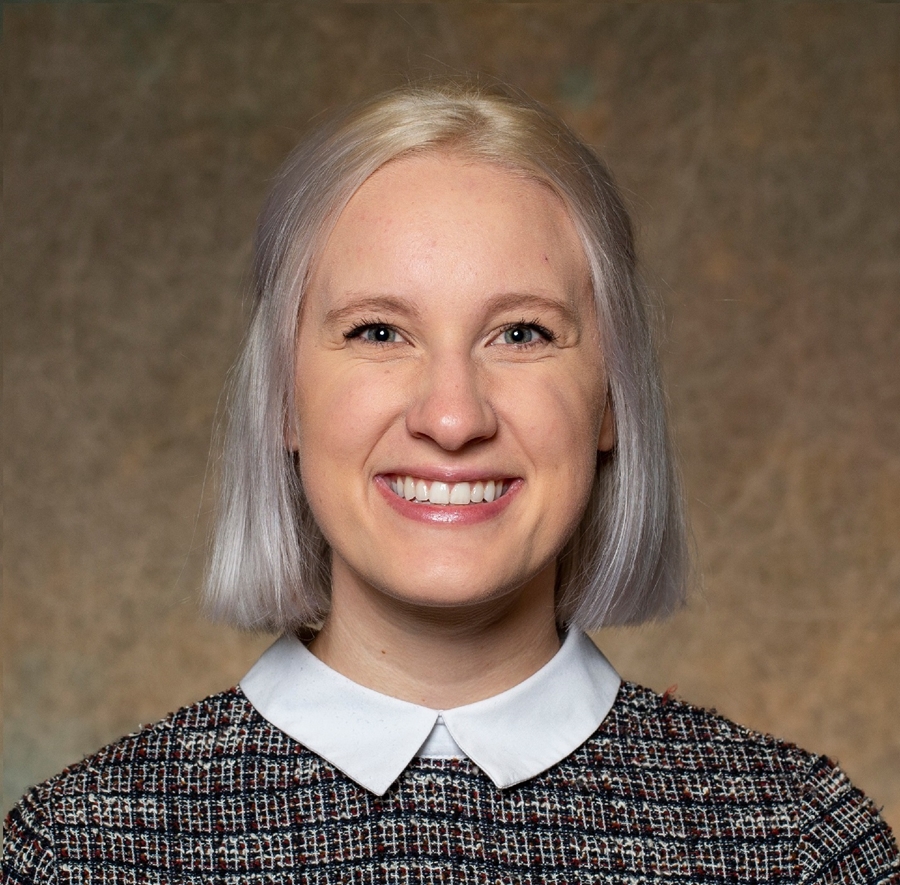Two recent graduates from the U of A earned this year's Distinguished Dissertation Award from the university's Graduate School and International Education.
Rebekah Brau's supply chain management dissertation, titled "Integrating Systems, Processes, and Human Judgment: Three Essays on Value Creation with Supply Chain Analytics," and Kelly Sanks' geosciences dissertation, "The Morphodynamic Interaction of River Deltas and Their Marshes," won the award, which recognizes doctoral students whose dissertations represent original work that makes an unusually significant contribution to their discipline. Brau's adviser was John Aloysius, and Sanks' adviser was John Shaw.
By winning the award, Brau's and Sanks' work will also compete for the Council of Graduate Schools/Proquest Distinguished Dissertation Award at the national level.
"These dissertations represent the type of impactful research we strive for here at the University of Arkansas and how we prepare students for successful futures," said Curt Rom, dean of the Graduate School and International Education. "Climate change and the supply chain are two areas that will pose significant challenges to our state, country and world, both in the short and long term. These extraordinary research projects provide invaluable insight in these areas that will solve problems and improve lives."
Rebekah Brau
Brau, who now serves as an assistant professor of global supply chain management at Brigham Young University after earning her doctorate from the U of A, focused her research on the optimal balance of human judgment and analytics in specific areas of the supply chain such as demand planning. Her dissertation includes three essays on the topic and draws from cognitive psychology, among other fields.
She decided on her dissertation topic after a discussion with her mentor during the first week of her Ph.D. program.
"I was talking with my faculty mentor, John Aloysius, about a grant he had just received focused on investigating the changing nature of supply chain functions due to analytics," Brau said. "That first conversation instantly had me hooked — I was so fascinated by how humans would continue to fit in supply chain functions despite the advances in technology."
She said she was "thrilled and honored" to receive the award.
"The University of Arkansas faculty, staff and students are so amazing, so it means the world that my dissertation was selected to represent the university," she said. "The choice to attend the University of Arkansas is one of the best decisions I have ever made, and I will be forever grateful for the training, mentoring and opportunities provided by the university."
Kelly Sanks
Sanks' paper seeks to deepen understanding of how marsh sediment shapes and impacts river deltas and how different types of sediment accumulation — such as sand and mud — interact with each other over millennia. Her research, conducted in collaboration with Shaw, has the potential to help improve future coastal restoration and management.
"I am very honored to have even been nominated for this award in the first place, and I feel so grateful to have won," Sanks said. "I had phenomenal mentors during my Ph.D., and I owe my success to them. Specifically, I could not have written this dissertation without John's support and willingness to let me study coastal marshes, which is something he was not an expert in when I started my Ph.D."
Sanks, who now works as a postdoctoral research fellow at Tulane University, has always harbored a love for nature and pursued degrees in geology to help address environmental threats such as climate change and also to help disadvantaged communities suffering from environmental degradation.
"I've seen how low-income neighborhoods are impacted by environmental degradation such as poor water or air quality," she said. "My dad was one of 12 children who grew up in a two-bedroom house in a low-income neighborhood in Chicago. My aunts, uncles and dad have all faced various health issues, and a lot of them have passed away from some type of cancer, including my dad. I want to use my career as a scientist to help disadvantaged people solve pressing issues facing their communities as well, so that other families can avoid similar fates."
Sanks became fascinated with coastal change after taking an environmental geology class. And after graduating with her bachelor's degree from Illinois State University, Sanks served in an internship at the U.S. Geological Survey in Woods Hole, Massachusetts, that directed her interest specifically toward coastal marshes.
"It was through this internship that I became interested in how marshes will react to rising sea levels and climate change and their potential as a carbon sink," she said. "Directly after this internship, I started my Ph.D. with John Shaw and told him that I wanted to continue research related to marshes. With his background in river deltas and my background in salt marshes, we came up with the idea to study how the ecological processes of coastal marshes interact with the physical processes in river deltas, something that is often neglected from delta evolution studies."
Annual Award
The Distinguished Dissertation Award is an annual award started in 2021 that recognizes two dissertations, each from different disciplines, with qualifying disciplines alternating each year. Nominations are solicited each spring by the associate dean of the Graduate School. Each doctoral program can nominate one student in the appropriate award cycle. Students must have completed their degree over the past two fiscal years.
More information on the award can be found on the GSIE website.
Topics
Contacts
John Post, director of communications
Graduate School and International Education
479-575-4853,

